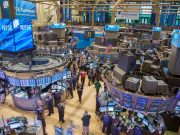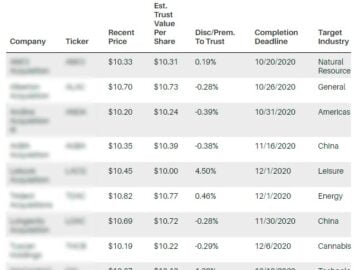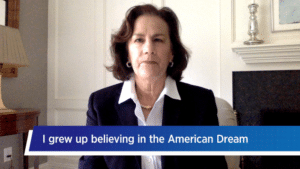Naturally, we have all, in one way or another, managed to adjust our expectations regarding the state of both the stock market and the broader U.S. economy. However, we are always looking for whatever silver lining can be found, and a lot of us have not given up hope. Whether it’s through the stock markets or the supermarkets, we have all in some way felt the effects of inflation. It’s arguably been more evident than ever before as we reflect on a very disappointing first half of 2022.
According to the Federal Reserve Bank of New York’s most recent poll released Monday, expectations for U.S. inflation three years ahead dropped to 3.6% in June from 3.9% a month earlier, the most significant drop since January. This is a pleasantly surprising silver lining amidst what is otherwise a rather disappointing set of results. Short-term expectations only continue to worsen.
What more did the New York Fed poll reveal, and what can we do to keep our inflation expectations reasonable?
Firstly, I must reiterate that in my introduction – which I don’t want you to misinterpret – I was referring to long-term, not short-term, consumer expectations, specifically where inflation will be three years from now as the “silver lining.” Otherwise, and unsurprisingly, according to the New York Fed survey – officially called the Survey of Consumer Expectations – U.S. consumer expectations for prices to rise in one year have grown to the highest level ever.
According to the monthly survey, the median short-term inflation predictions increased slightly from 6.6% in May to 6.8% in June. Expectations for inflation over the long-term, more specifically the next three years, fell from 3.9% to 3.6%, showing what we can reasonably consider a glimmer of hope that U.S. leaders and policymakers will eventually be successful in their fight to bring down skyrocketing prices.
The survey is a web-based, nationally representative poll with 1,300 household heads on a rotating panel. As we know, inflation in the U.S. has increased over the last year due to supply shortages brought on by the pandemic, subsequent consequences to consumer demand, and an energy shortage caused by the conflict in Ukraine. The Fed is attempting to control inflation by raising interest rates without sending the economy into a recession, which experts seem to consider more and more likely as time has passed.
Five-year forecasts have just been introduced to the New York Fed’s poll. Despite a significant difference, consumers expect prices to climb at a 2.76% annual rate over that time. Inflation expectations ranged from -1% in the lowest dataset portion of the study to 6% in the highest. There is a considerable geographical difference as well; last month, inflation predictions deteriorated in the West, Midwest, and South while improving in the Northeast.
One-fourth of respondents predicted that prices would increase by more than 8% in three years. Consumers anticipate that food costs will continue to increase by more than 9% in the coming year and expect housing rental inflation to continue rising. The New York Fed poll also shows the deteriorating general mood. An appropriate example is that household income growth is predicted to be just 3.2%, much less than the anticipated inflation rate.
Overall, U.S. authorities have changed their tone after first labeling the country’s inflation as “transitory,” acknowledging that it took them some time to realize the inflation’s long-term effects fully. Janet Yellen, the secretary of the Treasury, admitted in an interview last month, “I think I was wrong then about the path that inflation would take.” She went on to say, “There have been unanticipated and large shocks to the economy that have boosted energy and food prices and supply bottlenecks that have affected our country badly that I didn’t – at the time – fully understand, but we recognize that now.”
According to critics, the Fed’s lax attitude has enabled inflation to grow. Even Chairman Powell admits that the bold moves could force businesses to cut down on spending and hiring, resulting in job losses. This is evident in the June consumer survey, which revealed a little more.
People anticipate job searchers’ ability to find work in the next 12 months at 56.8%, down from 58.2%, while they expect job losses at 11.9%, up from 11.1%. The overall picture for household finances remains bleak: Compared to last year, 31.1% of participants said they were “somewhat worse off,” compared to 28.6% in May, and 13.6% said they were “much worse off,” up from 10.8% in May.
Powell recognized the increasing difficulties associated with inflation at a global central bank conference last month and inadvertently left behind a great quote with which to conclude this report:
“I think we now understand better how little we understand about inflation.”














